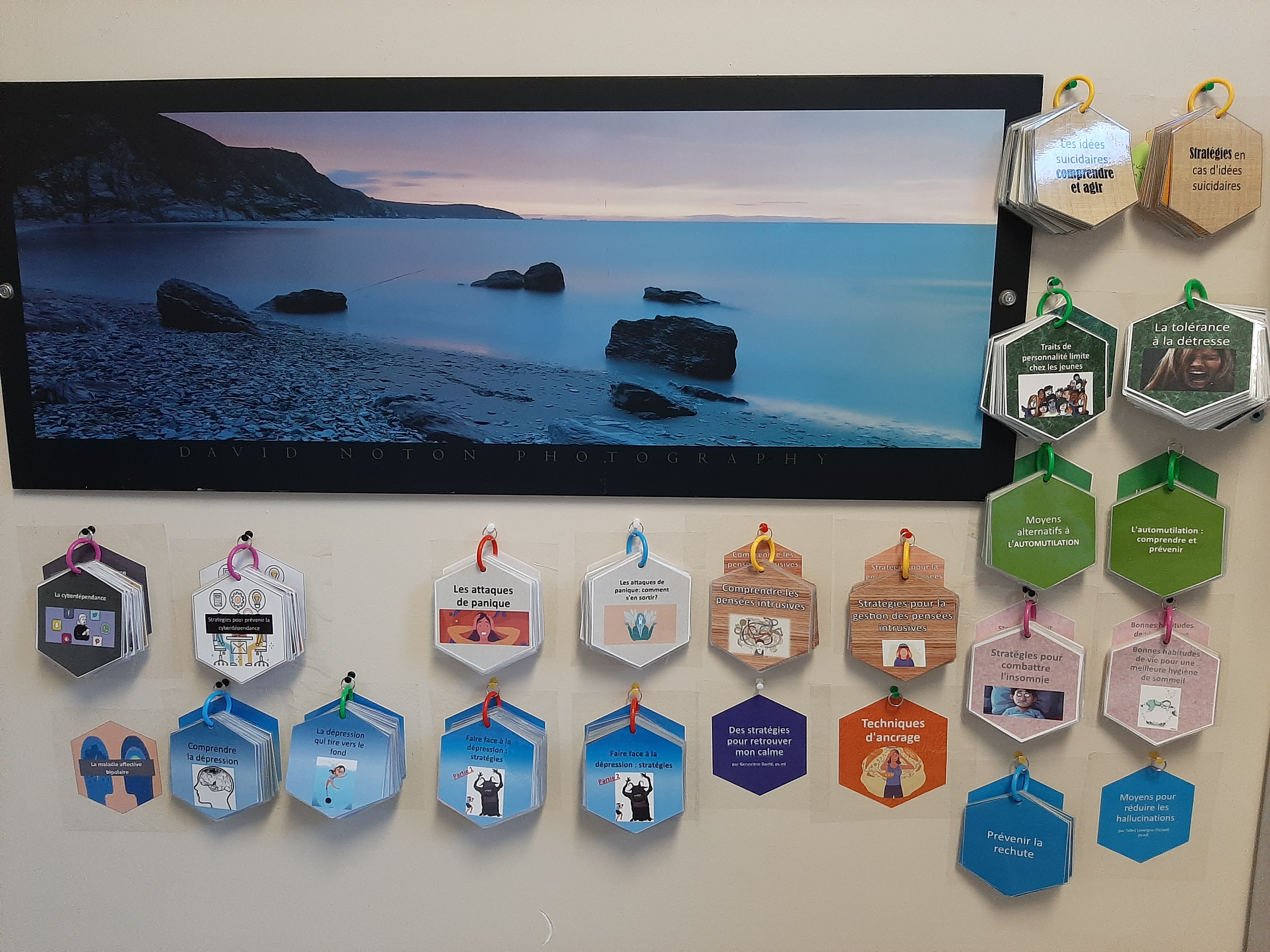
We are four psychoeducators working in mental health inpatient units for adolescents aged 12 to 18 (with various clinical profiles) at the Hôpital en santé mentale Rivière-des-Prairies, CIUSSS du Nord-de-l’île-de-Montréal. A psychiatric evaluation during hospitalization that brings to light a diagnosis often causes shock and concern in our patients and generates a lot of questions and confusion. They need to understand what is happening to them and learn how to deal with it. Our role is to support our patients by making them aware of their reality and by teaching them sound and effective strategies that will enable them to be more independent in managing their condition and, in many cases, their suffering. However, we realized that, when trying to find out about various mental health issues, young people often had to resort to academic and often dry reading material geared to health professionals or parents. We believe that young people need access to information that concerns them and that can help them gain a better understanding of themselves in terms of their mental health. We therefore took it upon ourselves create this resource in the strong belief that these youths have the ability to be active players in their own recovery.
Moving away from the typical book format, we created a repertoire of concrete teaching tools that we call “wheels.” Presented in the form of hand-held cards held together by a ring, each wheel addresses a given theme in a concrete, dynamic, clear and direct manner. Most of our themes are divided into two wheels, one explaining the nature of the clinical condition (normalization of symptoms, dispelling certain myths, clarifying the evolution of the condition), and the other offering a range of adaptive, concrete and specific strategies to support the individual’s adjustment to their mental health challenges. The wheels contain from 20 to 50 cards, depending on the topic. The writing is concise, easy to understand and backed by powerful and expressive images. Topics include suicidal ideation, personality disorders, self-harm, eating disorders, psychosis, panic attacks, depression, intrusive thoughts, and obsessive-compulsive disorder (OCD), to name just a few.
Project submitted by Geneviève David, Psychoeducator
Other contributors to the project: Geneviève David, Psychoeducator Sybel Lavergne, Psychoeducator; Julie Beauchamp, Psychoeducator and Emily Heng, Psychoeducator